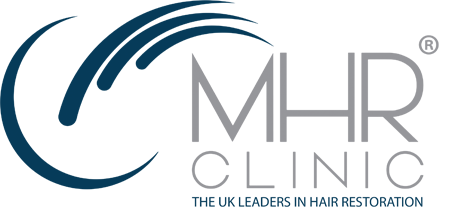The Psychological Impact of Hair Loss and How to Cope
Hair loss is a common condition that affects millions of people worldwide, transcending age, gender, and ethnicity. While the physical aspects of hair loss are well-documented, its psychological impact is often overlooked. Hair is deeply intertwined with our sense of identity and self-esteem, making hair loss a potentially traumatic experience. In this blog, we will explore the psychological effects of hair loss and offer strategies to cope with its emotional toll.
Understanding the Psychological Impact
Self-Esteem and Body Image: Hair is often seen as a symbol of beauty, vitality, and youth. Losing it can lead to a significant decline in self-esteem and body image. Many individuals may feel less attractive and struggle with their self-worth, leading to social withdrawal and isolation.
Anxiety and Depression: The stress of dealing with hair loss can trigger or exacerbate anxiety and depression. Concerns about appearance and fear of judgment from others can create a constant state of worry. For some, the anxiety can become so overwhelming that it affects daily functioning and mental health.
Social and Professional Life: Hair loss can impact social interactions and professional life. Individuals may avoid social gatherings or professional opportunities due to embarrassment or fear of being perceived differently. This can lead to missed opportunities and hinder personal and career growth.
Identity and Gender Roles: Hair often plays a crucial role in expressing identity and conforming to societal gender norms. For men, a full head of hair can symbolize masculinity and virility, while for women, long, thick hair is often associated with femininity and beauty. Hair loss can challenge these traditional roles, leading to an identity crisis.
Coping Strategies for Hair Loss
1. Seek Professional Help: Consulting with a healthcare provider, such as a dermatologist or a trichologist, can help determine the cause of hair loss and identify appropriate treatments. Medical interventions, such as medications, topical treatments, or hair transplants, can offer hope and tangible results.
2. Support Groups and Therapy: Joining a support group or seeking therapy can provide a safe space to share experiences and feelings with others who understand. Professional counselling can help address the emotional aspects of hair loss, build coping strategies, and improve mental health.
3. Educate Yourself: Understanding the causes and treatments of hair loss can empower you to make informed decisions about your health. Knowledge can alleviate some of the anxiety associated with the unknown and provide a sense of control over the situation.
4. Embrace Change: Finding ways to embrace your new appearance can be transformative. Experiment with different hairstyles, wigs, or head coverings that make you feel confident and comfortable. Embracing the change can lead to a renewed sense of self and style.
5. Focus on Health and Wellness: Maintaining a healthy lifestyle can improve overall well-being and boost confidence. Eating a balanced diet, exercising regularly, and managing stress through activities like yoga or meditation can have positive effects on both physical and mental health.
6. Challenge Negative Thoughts: Practicing positive self-talk and challenging negative thoughts can help improve self-esteem. Remind yourself that your worth is not defined by your appearance and focus on your strengths and qualities that make you unique.
7. Build a Support Network: Surrounding yourself with supportive friends and family can make a significant difference. Sharing your feelings and receiving encouragement can help alleviate some of the emotional burden of hair loss.
Conclusion
Hair loss can have profound psychological effects, impacting self-esteem, mental health, and overall quality of life. However, by seeking professional help, educating yourself, and employing effective coping strategies, it is possible to manage the emotional toll and maintain a positive outlook. Remember, hair loss does not define you; your strength, resilience, and inner beauty are what truly matter. Embrace your journey with confidence and know that you are not alone.
